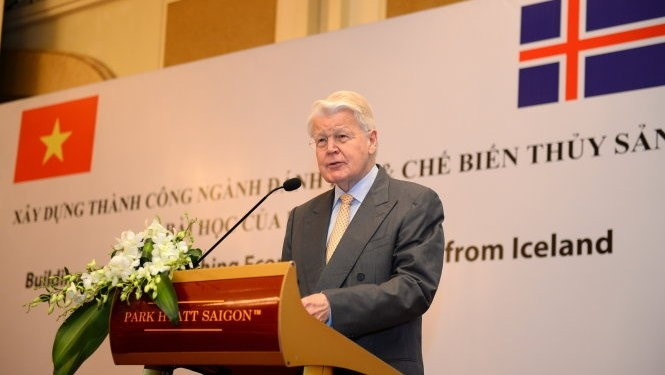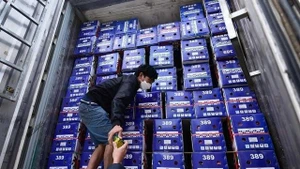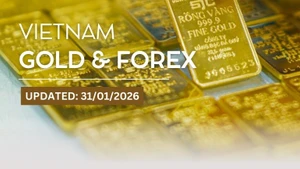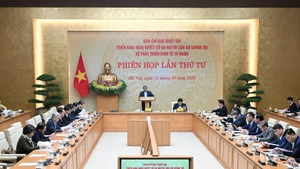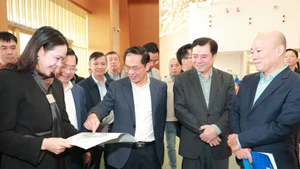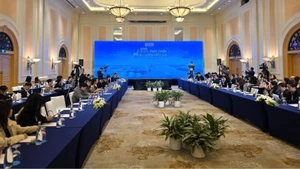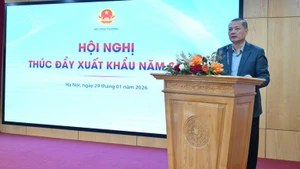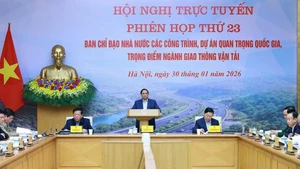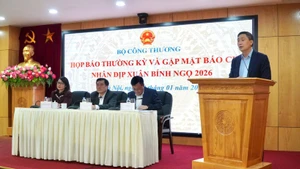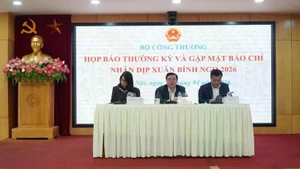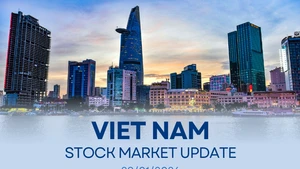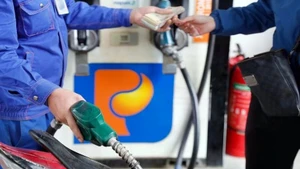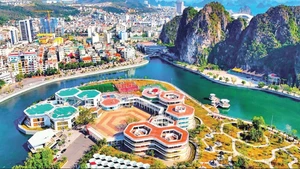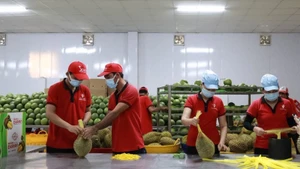Addressing the event, Icelandic President Olafur Ragnar Grimsson said that fisheries and seafood processing are Iceland’s most profitable sectors employing advanced technologies and modern methods. The sectors have a combination of scientific research and the efforts of the government and business, bringing benefits to the people, he said.
While sharing the development of Icelandic fishing and seafood processing from primitive to modern sectors, the president said that it offers a very high added value. The key issue is not in exploiting more fish, but increasing the quality and commercial value of fish. Many countries have eliminated remnants of fish captured during processing -including heads, stomachs, intestine, and skin - but Iceland has taken advantages of such parts to increase the value added for its products.
Accordingly, fish skin can be developed into wound healing products and other excesses can be turned into heat energy. This has helped Iceland become a leading country in fishing and seafood processing, with fish products exported to many countries around the world.
According to Iceland’s president, it’s time for Vietnam and Iceland to strengthen co-operation in fishing and seafood processing development to help to exploit Vietnam’s potentials in the sector.
In recent years, Vietnam’s fisheries and seafood processing have consistently achieved an annual average growth of around 15%, contributing significantly to exports and GDP. VCCI Vice Chairman Vo Tan Thanh said that the sector is highly promising, yet not strongly developed due to low powered boats and limited fishing equipment.
With the advantages and qualified modern technologies from Iceland, co-operation between the two countries in this field is expected to help to promote the potential benefits for both sides.
According to Deputy Minister of Agriculture and Rural Development Vu Van Tam, Vietnam's seafood industry is developing rapidly with high export value. However, losses during catching and post-harvest remain high, at around 25-30%. Experiences from Iceland will also help Vietnamese managers, researchers and businesses grasp lessons in fisheries resource surveys, fishing ground forecasts, and preservation and processing to enhance the value of Vietnamese fisheries products.
At the workshop, Icelandic experts also shared experiences to help Vietnamese enterprises update technologies in agriculture and fishery.
The event offers a chance for domestic businesses to promote technology transfers and seek co-operation opportunities with Icelandic partners.
